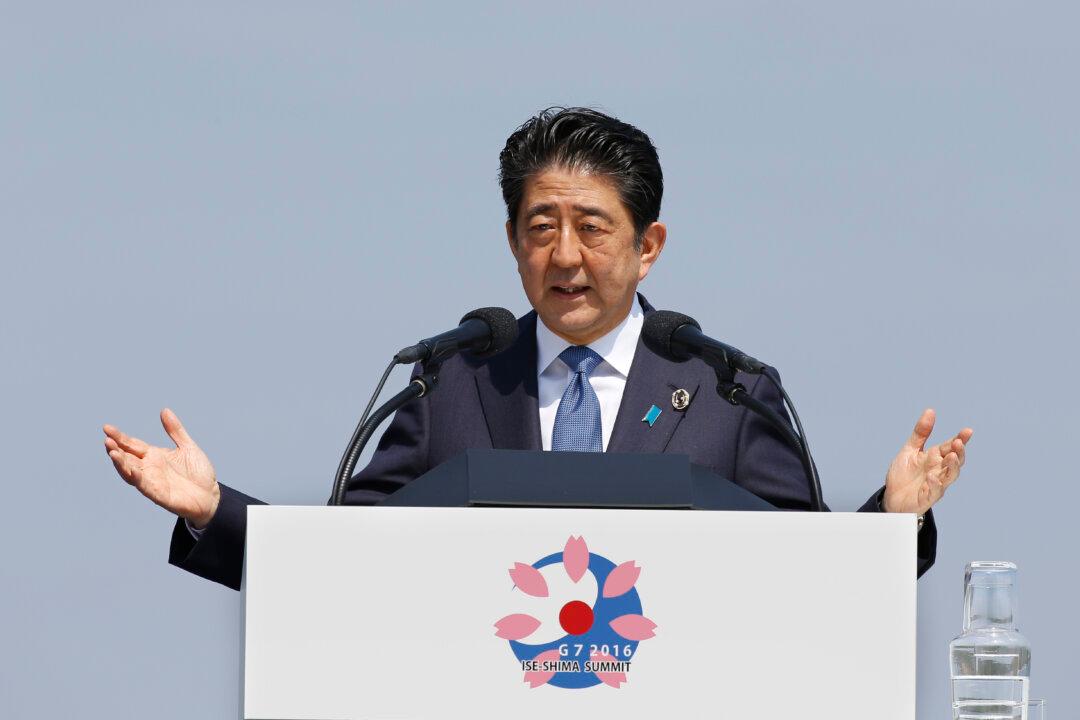SHIMA, Japan—Japanese Prime Minister Shinzo Abe claimed success Friday in winning support for his approach to fighting off a possible economic crisis from fellow leaders of the Group of Seven wealthy nations, despite mounting evidence the formula is failing to yield promised results in Japan.
In meetings at an isolated seaside resort renowned for its crayfish and pearls, Abe appealed for more action to stave off a downturn, insisting that an earlier lack of urgency contributed to the financial crisis of 2008-2009.
Wrapping up the gathering with a sweeping declaration and several additional “action plans,” the leaders acknowledged increasing risks for the global economic outlook, including terrorism, legions of displaced people, and conflicts that “pose a serious threat to the existing rule-based international order.”
But they said their countries had strengthened policies to avoid relapsing into crisis.
Attention swiftly shifted from the G-7 finale as Abe and U.S. President Barack Obama traveled to Hiroshima, where Obama became the first sitting American president to visit the city devastated by a U.S. atomic bomb in 1945 in the closing days of World War II.
Abe said the commitment by the leaders to “use all policy tools — monetary, fiscal and structural” was an endorsement of his own “Abenomics” three-pronged strategy for reviving Japan’s sluggish growth.
“We agreed to mobilize all our resources and launch three ‘arrows’ of monetary, fiscal and structural reform measures,” Abe said. “We will be launching Abenomics to the world.”






